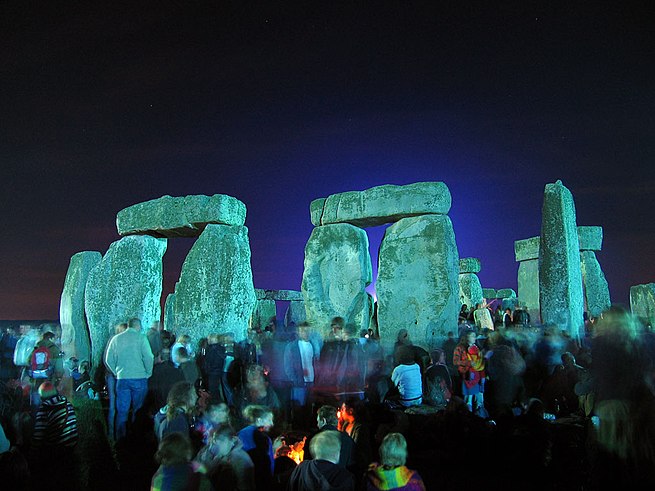Main Difference
The main difference between Community and Culture is that the Community is a group of interacting living organisms sharing a populated environment; a social unit of human organisms who share common values and Culture is a range of human phenomena that cannot be attributed to genetic inheritance.
-
Community
A community is a small or large social unit (a group of living things) who have something in common, such as norms, religion, values, or identity. Communities often share a sense of place that is situated in a given geographical area (e.g. a country, village, town, or neighborhood) or in virtual space through communication platforms. Durable relations that extend beyond immediate genealogical ties also define a sense of community. People tend to define those social ties as important to their identity, practice, and roles in social institutions like family, home, work, government, society, or humanity, at large. Although communities are usually small relative to personal social ties (micro-level), “community” may also refer to large group affiliations (or macro-level), such as national communities, international communities, and virtual communities.
The word “community” derives from the Old French comuneté, which comes from the Latin communitas “community”, “public spirit” (from Latin communis, “shared in common”).
Human communities may share intent, belief, resources, preferences, needs, and risks in common, affecting the identity of the participants and their degree of cohesiveness.
-
Culture
Culture () is the social behavior and norms found in human societies. Culture is considered a central concept in anthropology, encompassing the range of phenomena that are transmitted through social learning in human societies. Some aspects of human behavior, social practices such as culture, expressive forms such as art, music, dance, ritual, and religion, and technologies such as tool usage, cooking, shelter, and clothing are said to be cultural universals, found in all human societies. The concept of material culture covers the physical expressions of culture, such as technology, architecture and art, whereas the immaterial aspects of culture such as principles of social organization (including practices of political organization and social institutions), mythology, philosophy, literature (both written and oral), and science comprise the intangible cultural heritage of a society.
In the humanities, one sense of culture as an attribute of the individual has been the degree to which they have cultivated a particular level of sophistication in the arts, sciences, education, or manners. The level of cultural sophistication has also sometimes been seen to distinguish civilizations from less complex societies. Such hierarchical perspectives on culture are also found in class-based distinctions between a high culture of the social elite and a low culture, popular culture, or folk culture of the lower classes, distinguished by the stratified access to cultural capital. In common parlance, culture is often used to refer specifically to the symbolic markers used by ethnic groups to distinguish themselves visibly from each other such as body modification, clothing or jewelry. Mass culture refers to the mass-produced and mass mediated forms of consumer culture that emerged in the 20th century. Some schools of philosophy, such as Marxism and critical theory, have argued that culture is often used politically as a tool of the elites to manipulate the lower classes and create a false consciousness, and such perspectives are common in the discipline of cultural studies. In the wider social sciences, the theoretical perspective of cultural materialism holds that human symbolic culture arises from the material conditions of human life, as humans create the conditions for physical survival, and that the basis of culture is found in evolved biological dispositions.
When used as a count noun, a “culture” is the set of customs, traditions, and values of a society or community, such as an ethnic group or nation. Culture is the set of knowledge acquired over time. In this sense, multiculturalism values the peaceful coexistence and mutual respect between different cultures inhabiting the same planet. Sometimes “culture” is also used to describe specific practices within a subgroup of a society, a subculture (e.g. “bro culture”), or a counterculture. Within cultural anthropology, the ideology and analytical stance of cultural relativism holds that cultures cannot easily be objectively ranked or evaluated because any evaluation is necessarily situated within the value system of a given culture. Yet within philosophy, this stance of cultural relativism is undermined and made inapplicable since such value judgement is itself a product of a given culture.
-
Community (noun)
A group sharing a common understanding, and often the same language, law, manners, and/or tradition.
-
Community (noun)
A residential or religious collective; a commune.
-
Community (noun)
A group of interdependent organisms inhabiting the same region and interacting with each other.
-
Community (noun)
A group of people interacting by professional, social, or other purposes; a virtual community.
-
Community (noun)
The condition of having certain interests in common.
-
Community (noun)
Common enjoyment or possession; participation.
“a community of goods”
-
Community (noun)
Common character; likeness.
-
Community (noun)
Commonness; frequency.
-
Culture (noun)
the arts, customs, lifestyles, background, and habits that characterize a particular society or nation
-
Culture (noun)
the beliefs, values, behaviour and material objects that constitute a people’s way of life
-
Culture (noun)
any knowledge passed from one generation to the next, not necessarily with respect to human beings
-
Culture (noun)
cultivation
-
Culture (noun)
the process of growing a bacterial or other biological entity in an artificial medium
-
Culture (noun)
the growth thus produced
“I’m headed to the lab to make sure my cell culture hasn’t died.”
-
Culture (noun)
the collective noun for a group of bacteria
-
Culture (noun)
the details on a map that do not represent natural features of the area delineated, such as names and the symbols for towns, roads, meridians, and parallels
-
Culture (verb)
to maintain in an environment suitable for growth especially of bacteria cultivate}}
-
Culture (verb)
to increase the artistic or scientific interest in something cultivate}}

